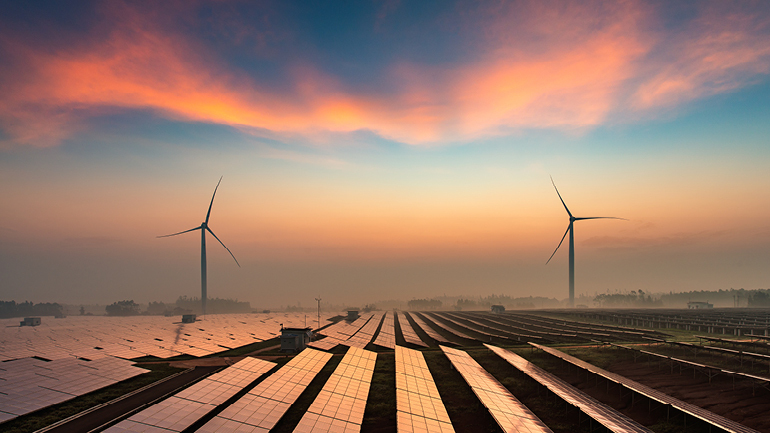As part of its growing body of ESG research on the economic realities of the low-carbon transition, TD Economics recently published its latest report, entitled "Reliable energy supply is crucial for the sustainability of the clean energy transition." In previous reports, TD Economics presented the main pathways for abating emissions and an argument for why carbon capture technologies should not be dismissed as part of the solution towards net zero emissions. In this report, TD Economics addresses the scale and complexity related to the production and deployment of clean energy technologies, including the necessary infrastructure and investment that are not yet fully addressed within current government policies and incentive structures.
Below are a few highlights from the report. To read the full report, click here.
- The shift from fossil fuels to clean energy alternatives creates a challenge in maintaining the reliability of energy supply. Price shocks related to the transition could diminish public support for climate change mitigation policies.
- Current underinvestment in the clean energy sector leaves the global economy on track to reduce oil and gas production faster than it is replacing it with alternatives. If the status-quo continues, there is increased risk of price volatility and elevated energy costs due to the mismatch between the supply and demand of fossil fuels. A significant acceleration in clean energy investment can lower the need for additional upstream fossil fuel investment.
- Last year's extreme weather events were another reminder of the urgent need to make the energy system more resilient to climate impacts. Part of the investment in the energy sector should be geared towards strengthening infrastructure against physical damage and building sufficient electricity generation capacity to cover demand spikes from extreme temperatures.
The latest United Nations Climate Change Conference (COP26) in Glasgow reaffirmed the commitment made in 2015 at the COP21 Paris summit to limit average global warming to well below 2°C, and ideally to no more than 1.5°C, above pre-industrial levels. Reaching this target will require large-scale reductions in greenhouse gas emissions, of which decarbonizing the energy sector is a critical component. The sector currently accounts for about three-quarters of greenhouse gas emissions from human activity.

In previous reports, we presented the main pathways for abating emissions and an argument for why carbon capture technologies should not be dismissed as part of the solution towards net zero emissions. In this report, we address the scale and complexity related to the production and deployment of clean energy technologies, including the necessary infrastructure and R&D investment that are not yet fully addressed within current government policies and incentive structures.
While the aspirations of how the composition of the energy system should evolve are largely set, lesser discussed is how the reliability of our energy supply will be impacted as fossil fuels are replaced by clean energy alternatives. The transition is likely to be a challenging endeavor given the world's strong dependence on fossil fuels and the short time frame within which we must transform energy consumption.
Though there is optimism in the possibilities opened by, for example, the declining costs of solar panels, wind turbines and electric cars, the global economy is still heavily underinvesting in clean energy technologies and infrastructure. In addition, there are technical challenges and potential growing pains to replacing the majority of the world's energy infrastructure.
These challenges make it difficult to determine how fast the world should be reducing investment in fossil fuels. A faster ramp down in fossil fuel supply that is not combined with an offsetting increase in renewables and the decarbonization of the demand side would lead to supply shortfalls and price spikes, with economic repercussions that include higher inflation and slower economic growth. This, in turn, risks reducing political support for the set of policies and frameworks necessary to support the energy transition in the first place.
There are already warning signs appearing on the global stage. The surge in the price of energy and other commodities following Russia's invasion of Ukraine has worsened inflation and risks hurting economic growth. In response, some governments have reversed policies by cutting gasoline taxes, providing income transfers, releasing supply from strategic reserves or taking other measures. This highlights risk aversion within the public and governments to bear the economic cost that comes with sudden supply shortages.
To minimize the likelihood of future energy shortages, climate policy planning needs to strike a balance between the long-term decarbonization vision and ensuring that we do not move faster on dismantling the existing energy supply than we do on building clean energy alternatives. As well, increasing weather variability introduces new concerns for a world that is to be progressively powered by energy sources that are weather dependent.
Overall, policy makers must keep a holistic view on how the interaction of various decarbonization measures could affect the reliability of energy supply and where necessary, craft policies to ensure that the energy system has enough buffers in place.
